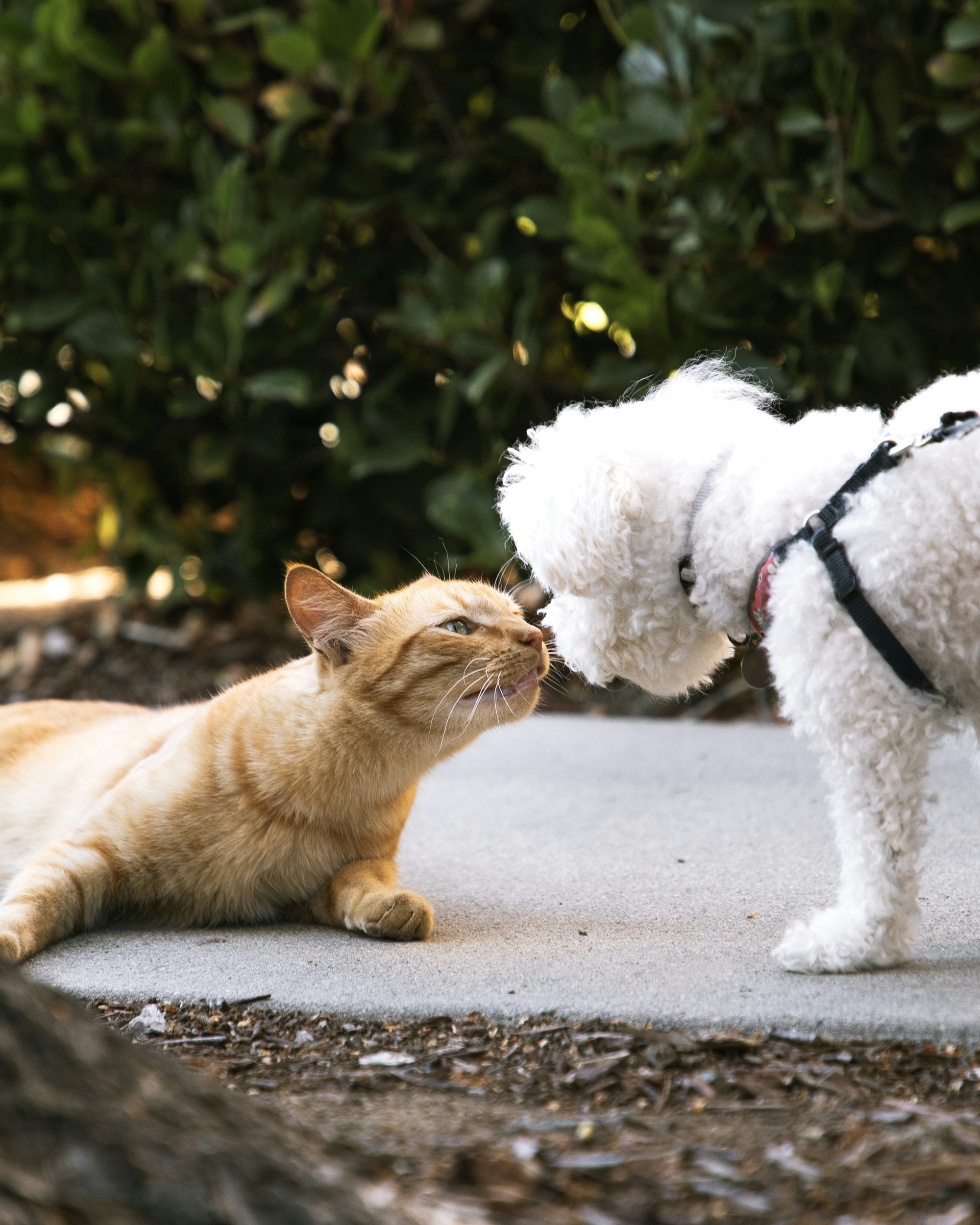Zoonotic Diseases
These are diseases that can be transmitted between animals and humans. Take steps to protect yourself and your family.
-
Always wash your hands after handling animals, cleaning cages, or coming into contact with animal waste.
Avoid contact with animal faeces and bodily fluids where possible.
Vaccinate your pets: Ensure your pets are up-to-date on vaccinations to minimize the risk of zoonotic disease transmission.
Consult your vet if you notice unusual behaviour or signs of illness in your pet.
-
What is Ringworm?
Ringworm is a fungal infection of the skin, hair, or nails. Despite the name, it is not caused by a worm but by a group of fungi known as dermatophytes.
How is Ringworm Transmitted?
Ringworm is highly contagious and spreads through direct contact with an infected animal or person, or through contaminated objects like brushes, bedding, or surfaces.
Which Animals Carry Ringworm?
Cats, dogs, rabbits, and other animals can carry ringworm, often without showing visible signs of infection.
How Can You Protect Yourself?
Avoid direct contact with infected animals until they are treated.
Disinfect bedding, grooming tools, and surfaces that an infected animal has come into contact with.
Wear gloves when treating or handling animals with ringworm.
Seek veterinary treatment for infected pets as soon as possible.
-
What is Leptospirosis?
Leptospirosis is a bacterial infection that can affect both humans and animals. It is caused by bacteria called Leptospira.
How is Leptospirosis Transmitted?
The bacteria are found in the urine of infected animals, especially rodents, dogs, and livestock. Humans can contract leptospirosis through contact with contaminated water, soil, or infected animal urine, often through cuts or mucous membranes (eyes, nose, mouth).
Which Animals Carry Leptospirosis?
Dogs, livestock, rodents (especially rats), and wildlife can carry and transmit leptospirosis.
How Can You Protect Yourself?
Wear gloves when handling animals or cleaning up urine, especially if you suspect leptospirosis.
Avoid swimming or wading in water that might be contaminated with animal urine.
Disinfect surfaces that may be contaminated with urine.
Seek veterinary care for your pets and ask about the leptospirosis vaccine for dogs.
-
What is Salmonellosis?
Salmonellosis is an infection caused by Salmonella bacteria, which can cause gastrointestinal symptoms like diarrhoea, vomiting, and fever.
How is Salmonella Transmitted?
Salmonella can be transmitted through contact with infected animals (particularly reptiles, amphibians, and poultry), their faeces, or contaminated food or water. It can also spread through surfaces or items contaminated with the bacteria.
Which Animals Carry Salmonella?
Reptiles (such as turtles, snakes, and lizards), amphibians (frogs), poultry, rodents, and some mammals can carry Salmonella without showing signs of illness.
How Can You Protect Yourself?
Wash your hands thoroughly after handling animals, especially reptiles, birds, or their environments.
Avoid eating or drinking near animals, especially reptiles or birds.
Disinfect any surfaces that have come into contact with potentially infected animals or faeces.
Supervise children when handling animals, ensuring they practice proper hand hygiene.
-
What is Toxoplasmosis?
Toxoplasmosis is an infection caused by the parasite Toxoplasma gondii. It is usually harmless to healthy individuals but can be dangerous to pregnant women and people with weakened immune systems.
How is Toxoplasmosis Transmitted?
The parasite is transmitted through contact with cat faeces (such as when cleaning litter boxes) or through consuming undercooked, contaminated meat. It can also be passed from mother to foetus during pregnancy.
Which Animals Carry Toxoplasma?
Cats are the primary carriers of Toxoplasma gondii. The parasite is shed in their faeces but only for a few weeks after initial infection.
How Can You Protect Yourself?
Wear gloves when cleaning your cat's litter box and wash your hands thoroughly afterward.
Clean litter boxes daily, as Toxoplasma becomes infectious 1-5 days after being shed in cat faeces.
Avoid undercooked meat and wash vegetables thoroughly to reduce the risk of exposure from food.
Pregnant women should avoid handling cat litter, if possible.
-
What is Rabies?
Rabies is a viral disease that affects the nervous system of mammals, including humans. It is almost always fatal once symptoms appear.
How is Rabies Transmitted?
Rabies is typically transmitted through the bite or scratch of an infected animal, or through saliva entering an open wound or mucous membranes (eyes, mouth).
Which Animals Carry Rabies?
In the UK, rabies is rare, but it can be found in bats. In other countries, it is more common in dogs, cats, foxes, and other wildlife.
Avoid contact with wild animals and any domestic animals showing abnormal behaviour (such as aggression or fear of water).
If traveling to countries where rabies is common, ensure your pets are vaccinated and avoid direct contact with stray animals.
Seek immediate medical attention if you are bitten or scratched by an animal that may be infected.
Wash any bites or scratches thoroughly with soap and water.
-
What is Brucellosis?
Brucellosis is a bacterial infection that can affect dogs and, very rarely, humans. It often causes no obvious symptoms, it an be spread between dogs, and, rarely, can infect people through close contact.
It is typically transmitted through secretions, usually reproductive fluids e.g. discharges from reproductive organs or birthing fluids.
Brucella canis is found more commonly in dogs from Central and Eastern Europe, the Mediterranean region, Asia, Africa, Central and South America, and the Middle East, and is rarely seen in dogs with no history of overseas travel or importation.
Dogs imported from, or who have travelled to, these countries should be tested.
For further information see our Imported & Travelled Dogs advice page.


